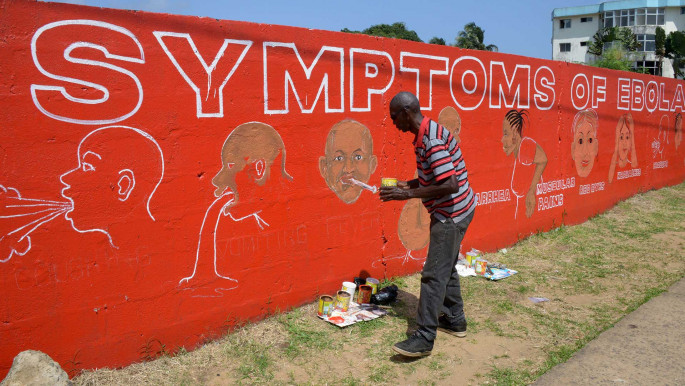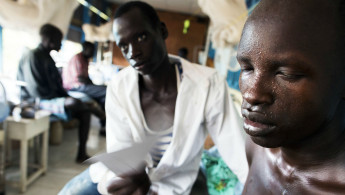Unidentified 'Ebola-like disease' sweeping through South Sudan
A deadly mysterious disease has erupted and spread across the north of war-torn South Sudan, the World Health Organisation [WHO] has warned.
The Ebola-like syndrome has so far infected 51 people and killed 10 between late December 2015 and early May 2016 in the north-western states of Aweil East and Aweil West close to the Sundanese border.
The WHO has classified the disease as an unidentified "haemorrhagic fever syndrome", which has symptoms similar to Ebola such as unexplained bleeding, fever, fatigue, headache and vomiting, however, there is no evidence of person-to-person transmission.
"The laboratory results received so far do not explain the symptomatology of the reported cases nor the high mortality rate," the WHO said in a statement.
"Since the underlying cause of this public health event remains unknown, close monitoring and further epidemiological investigation is needed."
 |
|
| Liberian authorities have said the country is Ebola-free [Getty] |
It added that the symptoms of the mystery disease rapidly resolve following supportive treatment.
The area of the outbreak borders the Sudanese region of Darfur, where at least 469 cases of another undiagnosed haemorrhagic fever killed 120 people between August and November last year.
In February 2014, news emerged of a "mysterious haemorrhagic fever" in the West African country of Guinea, which was later identified as the Ebola virus.
At its peak in 2014, Ebola sparked anxiety about a possible global pandemic and led some governments to threaten or unilaterally enforce travel bans to and from the worst-affected countries - Liberia, Sierra Leone and Guinea.
Liberian authorities announced this month that the country was finally free of Ebola, meaning there are now no known cases in west Africa of the tropical virus that left more than 11,300 people dead in its most recent outbreak.
Liberia was the country worst hit, with more than 4,800 Liberians killed by the virus, and was awaiting the all-clear following the discharge of its last known patients in May.
The west African nation has now passed the WHO threshold of 42 days - twice the incubation period for the virus - since the last known patient tested negative for the second time.
The WHO on June 1 declared an end to Ebola in Guinea, and in Sierra Leone on March 17.
However, previous declarations announcing the end of Ebola flare-ups in West Africa have been followed by new cases - the virus has re-emerged three times in Liberia.



